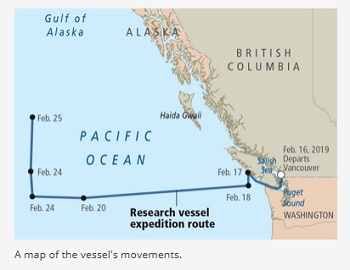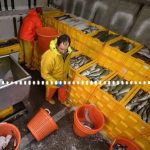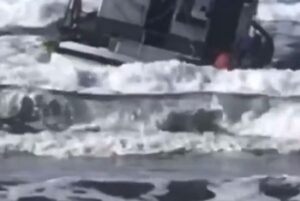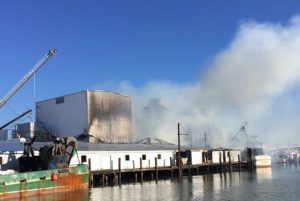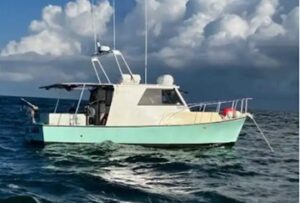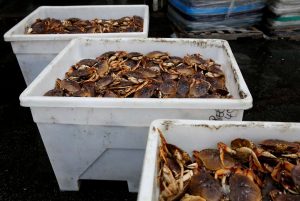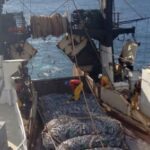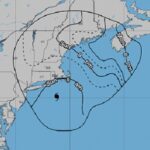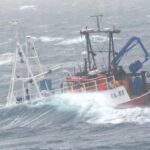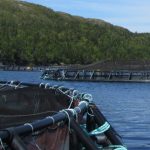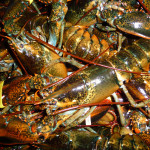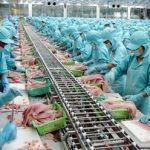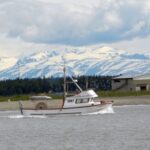Tag Archives: fish farming industry
Fish farming fouls fjords, faces fines
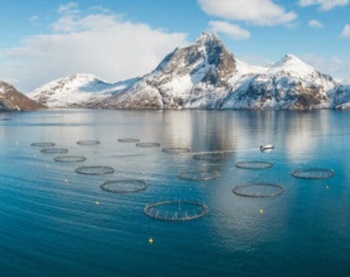 Norway’s huge fish-farming industry has become almost as controversial as the country’s oil and gas. Salmon producers in particular have long been accused of endangering wild salmon, but now Norwegian media have also reported how some fish hatcheries have polluted fjords while fish farms have neglected fish welfare. This week six of Norway’s major salmon producers also found themselves facing charges of collusion lodged by the European Commission. Norway is home to the world’s largest salmon producers and the EU is their biggest market. On Thursday, EU competition authorities sent out a “Statement of Objections” to six Norwegian salmon producers including Lerøy, Mowi, SalMar, Cermaq, Grieg Seafood and Bremnes. All are suspected of having “breached EU antitrust rules by colluding to distort competition in the market for spot sales of Norwegian farmed Atlantic salmon in the EU.” photos, more, >>click to read<< 12:26
Norway’s huge fish-farming industry has become almost as controversial as the country’s oil and gas. Salmon producers in particular have long been accused of endangering wild salmon, but now Norwegian media have also reported how some fish hatcheries have polluted fjords while fish farms have neglected fish welfare. This week six of Norway’s major salmon producers also found themselves facing charges of collusion lodged by the European Commission. Norway is home to the world’s largest salmon producers and the EU is their biggest market. On Thursday, EU competition authorities sent out a “Statement of Objections” to six Norwegian salmon producers including Lerøy, Mowi, SalMar, Cermaq, Grieg Seafood and Bremnes. All are suspected of having “breached EU antitrust rules by colluding to distort competition in the market for spot sales of Norwegian farmed Atlantic salmon in the EU.” photos, more, >>click to read<< 12:26
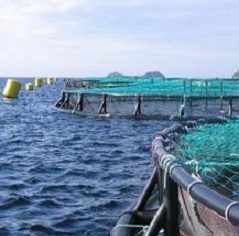
A history of toxic chemicals in the fish farming industry
When fish farms first appeared on the coast in the late 1970s, they seemed like an interesting idea. They could provide food, meet consumer demand, and perhaps alleviate the stress on wild stocks.,, Atlantic salmon and Norwegian owners became the new face of fish farms. The salmon are densely packed into the net pens, moving among their own faeces, fish pellets, and chemicals that are regularly dumped into the pens to deter the prevalent bacteria and sea lice that these conditions give rise to.,, “Many of the pesticides, insecticides and fungicides used by salmon farmers are derived from the Second World War’s chemical weapons programs,” writes Don Staniford in A Stain upon the Sea. These chemicals, used internationally, have poisoned the land via commercial agriculture, but were never intended to be dumped into the sea via aquaculture. >click to read< 09’10
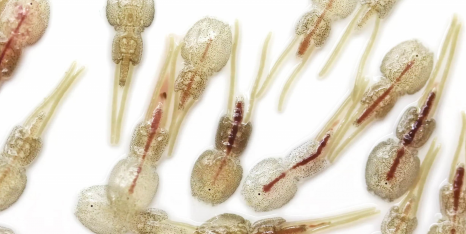
Why ‘normal’ salmon don’t get as many parasites
New research reveals the inherent ability of salmon to avoid infection through their first line of defense—behavior. In the rapidly growing fish-farming industry, parasite outbreaks cause production inefficiencies, poor welfare for billions of fish, and negative consequences for wild populations when diseases spread. “Parasite outbreaks in wild fish have been induced by farmed fish in major farming systems, such as sea lice infestations on wild salmon in Europe and North America,” says Tim Dempster, associate professor in the School of BioSciences at the University of Melbourne. click here to read the story 15:25
Coastal lawmaker wants to create fish farming industry in North Carolina waters
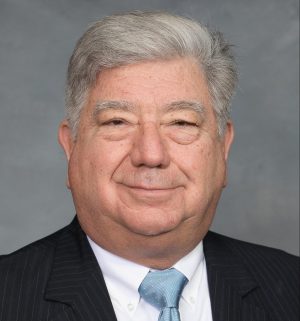 A proposal moving through the state Senate calls for leasing waters off the North Carolina coast so people can farm fish. Senate Bill 410 would allow people to lease from 100 to 1,500 acres in the state’s sounds and the Atlantic Ocean, where they could build underwater pens to raise various species of fish that they could later sell to supermarkets and restaurants. “We’re creating an industry here,” sponsor Sen. Bill Cook, R-Beaufort, told members of the Senate Finance Committee this week. “This is not something we’re doing in North Carolina. This will allow us to do fish farming and bring in some big bucks.” Sebastian Belle, executive director of the Maine Aquaculture Association, told lawmakers that fish farming is a $100 million business in his state, which has been leasing areas along its coast for 35 years. “The sector is growing worldwide,” Belle said, adding that fish farming “will help keep kids in those (coastal) communities working on the waterfront.” click here to read the story 13:23
A proposal moving through the state Senate calls for leasing waters off the North Carolina coast so people can farm fish. Senate Bill 410 would allow people to lease from 100 to 1,500 acres in the state’s sounds and the Atlantic Ocean, where they could build underwater pens to raise various species of fish that they could later sell to supermarkets and restaurants. “We’re creating an industry here,” sponsor Sen. Bill Cook, R-Beaufort, told members of the Senate Finance Committee this week. “This is not something we’re doing in North Carolina. This will allow us to do fish farming and bring in some big bucks.” Sebastian Belle, executive director of the Maine Aquaculture Association, told lawmakers that fish farming is a $100 million business in his state, which has been leasing areas along its coast for 35 years. “The sector is growing worldwide,” Belle said, adding that fish farming “will help keep kids in those (coastal) communities working on the waterfront.” click here to read the story 13:23

































